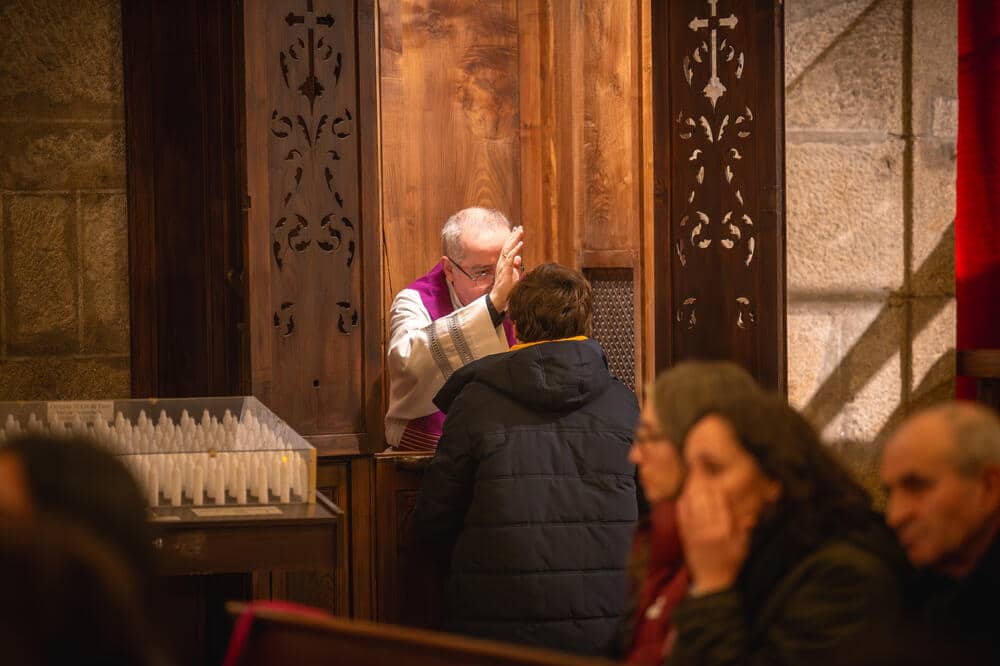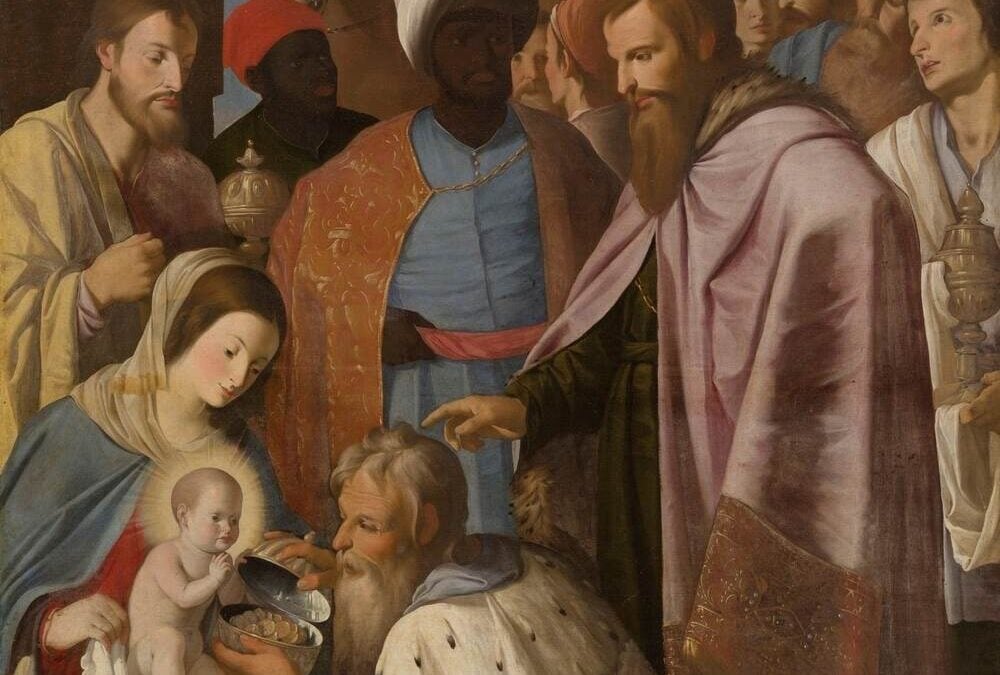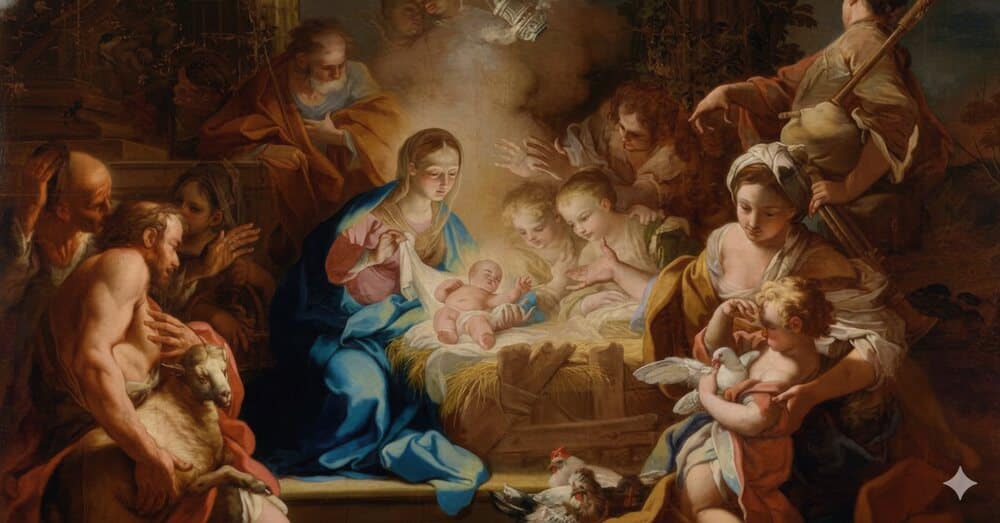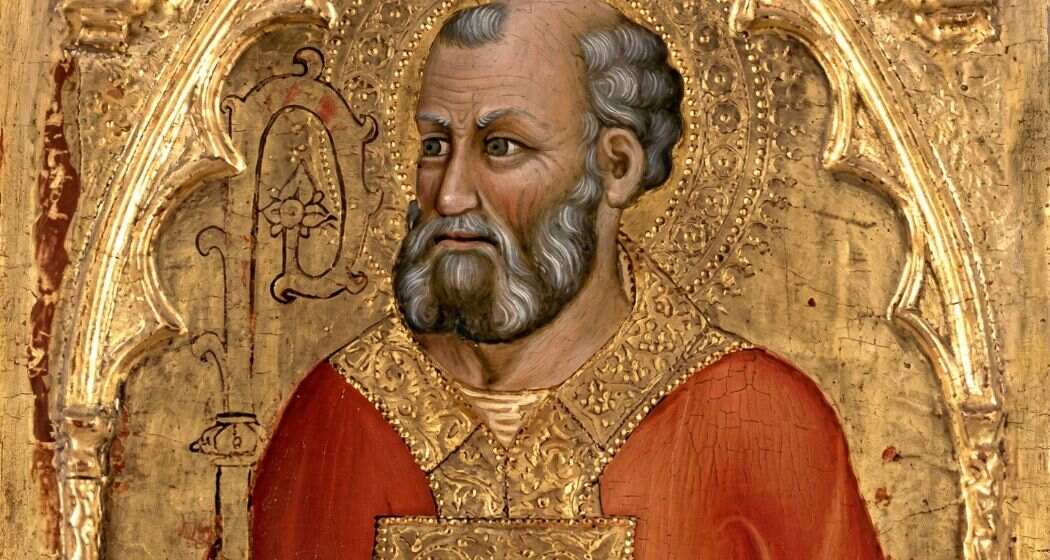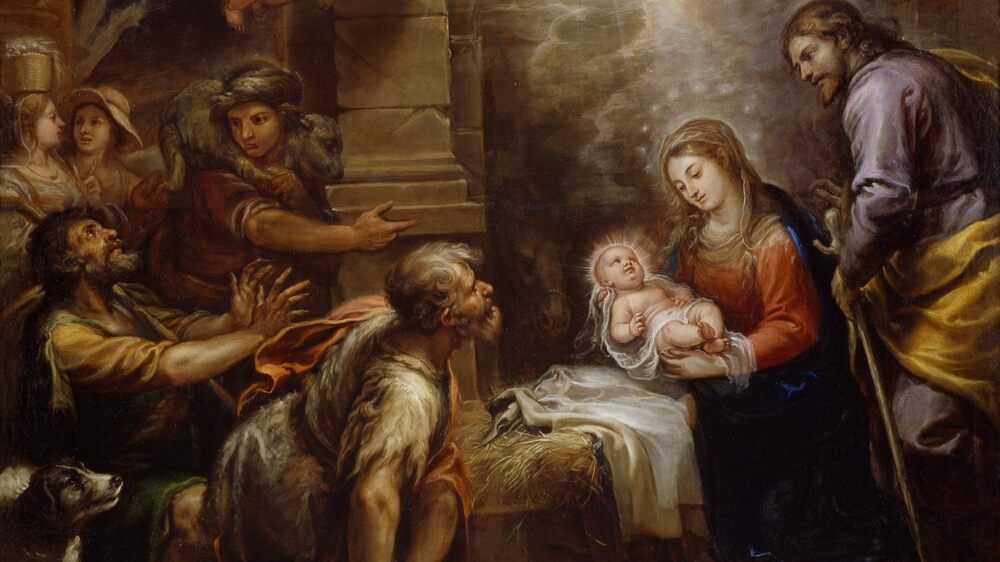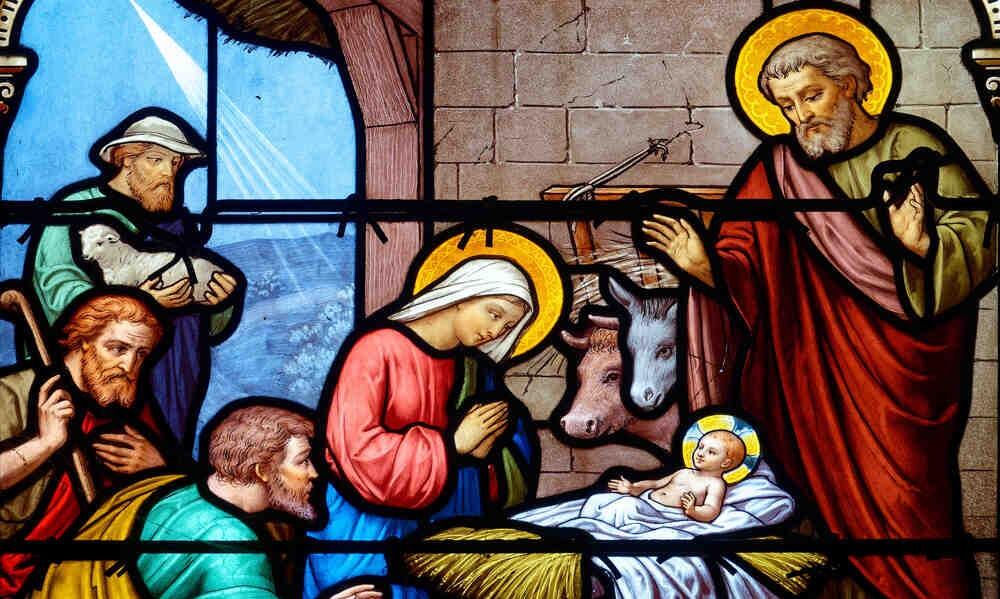Don’t know what to confess because you haven’t committed any mortal sins since your last confession?
Several well-known priests, such as Father Mark-Mary (from The Rosary in a Year) and Father Mark Ruckpaul (priest in Ave Maria), suggest that if you don’t have any serious sins to confess since your last confession, use the 8 Beatitudes as a guide for your examination of conscience. This approach helps to deepen spiritual growth and the effort to be more faithful to Christ’s example. Additionally, it’s a way to examine whether our attitudes and behaviors are aligned with the ideals Jesus presented in the Sermon on the Mount.
A good examination of conscience, guided by the Beatitudes (Matthew 5:3-12), will help you prepare for this encounter with divine mercy. Find it at the end of the article!
- You may be interested in: Examination of Conscience Based on the 10 Commandments
What is an Examination of Conscience?
The examination of conscience is an act of deep reflection that invites the believer to confront themselves in light of God’s commandments and the teachings of the Church. The examination of conscience is fundamental to adequately prepare for the sacrament of confession, as it allows one to identify both the sins committed and the areas that require conversion and change.
To conduct a fruitful examination of conscience, it is necessary to find a quiet place, free from distractions, where one can dedicate time to reflection. The examination should include a review of the 10 Commandments, Jesus’ teachings, and the norms of the Church, sincerely asking oneself if one has lived according to them. Questions such as “Have I given priority to God in my life?”, “Have I treated others with justice and love?”, or “Have I avoided occasions of sin?” are essential in this moment of introspection.
In addition to reflecting on the sins of commission —the bad actions performed—, the examination of conscience also invites us to consider the sins of omission: those good works that we have failed to do. It is a moment to evaluate our relationships with others, our participation in community life, and how we are living according to Christian values.
The examination of conscience should be a regular practice, not only before confession, but as an integral part of daily spiritual life. This habit of constant self-evaluation helps to recognize our weaknesses and strengthen our virtues, promoting continuous growth in faith. By living consciously aligned with Christian values, we cultivate a closer relationship with God, guided by His love and mercy.
Examination of Conscience Based on the Beatitudes:
1. “Blessed are the poor in spirit, for theirs is the Kingdom of Heaven”
- Am I poor in spirit, poor within, completely abandoned to God?
- Am I free and detached from earthly goods?
- What does money represent to me?
- Do I try to follow a sober and simple lifestyle, as befits someone who wants to witness the Gospel?
- Do I take seriously the problem of the dreadful poverty not chosen but imposed on so many millions of my brothers and sisters?
2. “Blessed are the meek, for they shall inherit the earth”
- Am I humble?
- Do I control anger both outside and inside myself? (There is a violence of actions, but also a violence of words and thoughts.)
- Am I kind and affable with those close to me?
3. “Blessed are those who mourn, for they shall be comforted”
- Do I consider affliction as a misfortune and punishment, as people of the world do, or as an opportunity to resemble Christ?
- What are the reasons for my sorrows: the same as God’s or those of the world?
- Do I try to console others or only to be consoled myself?
- Do I know how to keep some setback as a secret between God and myself, without talking about it left and right?
4. “Blessed are those who hunger and thirst for righteousness, for they shall be satisfied”
- Do I hunger and thirst for holiness? Do I strive for holiness or have I long resigned myself to mediocrity and lukewarmness?
- Does the material hunger of millions of people challenge my constant pursuit of comfort, my bourgeois lifestyle?
- Do I realize to what extent I and the world I live in are in the situation of the rich man?
5. “Blessed are the merciful, for they shall obtain mercy”
- Am I merciful? When faced with a mistake by a brother, a collaborator, do I react with judgment or with mercy?
- Jesus felt compassion for the crowds: what about me?
- Have I also been at times the forgiven servant who does not know how to forgive?
- How many times have I lightly asked for and received God’s mercy for my sins, without realizing at what price Christ has procured it for me?
6. “Blessed are the pure in heart, for they shall see God”
- Am I pure in heart? Pure in intentions?
- Do I say yes and no like Jesus?
- There is a purity of heart, a purity of lips, a purity of eyes, a purity of body… Do I try to cultivate all these necessary purities?
- The most direct opposite of purity of heart is hypocrisy. Whom do I strive to please in my actions: God or men?
7. “Blessed are the peacemakers, for they shall be called children of God”
- Am I an agent of peace? Do I make peace between parties? How do I behave in conflicts of opinions, of interests?
- Do I strive to always and only report the good, the positive words, letting the evil fall into emptiness, the gossip, what can sow discord?
- Is God’s peace in my heart, and if not, why?
8. “Blessed are those who are persecuted for righteousness’ sake, for theirs is the kingdom of heaven”
- Am I willing to suffer silently for the Gospel?
- How do I react to any offense or slight I receive?
- Do I intimately participate in the sufferings of so many brothers and sisters who truly suffer for their faith, or for social justice and freedom?
I Confess To Almighty God Prayer
I confess to Almighty God, and to you, my brothers and sisters, that I have greatly sinned in my thoughts and in my words, in what I have done and in what I have failed to do.
Through my fault, through my fault, through my most grievous fault.
Therefore I ask Blessed Mary ever-Virgin, all the Angels and Saints, and you, my brothers and sisters, to pray for me to the Lord our God.Amen
If you seek to deepen your spiritual life, this examination of conscience based on the 8 Beatitudes is an excellent tool for reflecting on your actions and drawing closer to God. This exercise will help you grow in your faith and improve in your Christian journey.
Use the Mass Times app to find confession schedules at a nearby church to attend today! Download it now.
If while reading this examination of conscience you feel the desire to approach God, don’t put it off. Confession is a precious opportunity to free yourself from the weight of sin and start anew with a clean heart. I recommend reading our article on how to make a good confession, where we guide you step by step so that you can experience this sacrament with peace and confidence. Don’t be afraid! God is waiting for you with open arms. Why not confess this week?
What are the Biblical Beatitudes?
The Beatitudes are teachings of Jesus found in the Sermon on the Mount (Matthew 5:3-12). These Beatitudes present the ideals of God’s kingdom, offering blessings to those who live according to Christian values. They can serve as a guide in the examination of conscience, helping to evaluate if we are living according to these ideals.
What do the 8 Beatitudes mean?
The Beatitudes describe those who are blessed by God, such as the poor in spirit, those who mourn, the meek, those who hunger and thirst for righteousness, the merciful, the pure in heart, the peacemakers, and those who are persecuted for righteousness’ sake. Each one invites us to reflect in our examination of conscience on how we are living these virtues in our daily lives.
What are the 8 Beatitudes?
The 8 Beatitudes are:
-
Blessed are the poor in spirit, for theirs is the kingdom of heaven.
-
Blessed are those who mourn, for they will be comforted.
-
Blessed are the meek, for they will inherit the earth.
-
Blessed are those who hunger and thirst for righteousness, for they will be filled.
-
Blessed are the merciful, for they will receive mercy.
-
Blessed are the pure in heart, for they will see God.
-
Blessed are the peacemakers, for they will be called children of God.
-
Blessed are those who are persecuted for righteousness’ sake, for theirs is the kingdom of heaven.
The examination of conscience based on these Beatitudes helps identify areas where we can grow spiritually.
Are there 8 or 9 Beatitudes?
There are 8 Beatitudes in total, according to the Gospel of Matthew (5:3-12). Although some people mention variations or additional interpretations, the number of Beatitudes in the biblical texts is eight. When doing an examination of conscience, these eight Beatitudes serve as an excellent framework for reflecting on how we are living Christian principles in our daily lives.

